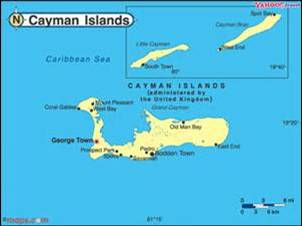The Select Vantage case: a victory for mutual regulatory aid
Chris Hamblin, Editor, London, 9 January 2018

The Court of Appeal of the Cayman Islands recently upheld a ground-breaking decision by the islands' lower courts to enforce an order which required Select Vantage Inc to comply with a 'direction' issued by the Cayman Islands Monetary Authority on behalf of an overseas regulator.
For some time CIMA helped ASIC in accorance with s6(1c) Monetary Authority Law (2016 Revision) and its agreements with IOSCO, the International Organisation of Securities Commissions. It asked Select Vantage (in a so-called 'direction' document) to provide information and documents concerning traders as per the original request by the Australian regulators. Select Vantage failed to comply, CIMA took the matter to court and obtained an ex parte order from the Grand Court (Financial Services Division), the order was upheld at a subsequent inter partes hearing. Following the hearing, the Honourable Justice Raj Parker ordered Select Vantage to provide the information requested in accordance with CIMA’s direction. He also awarded CIMA costs.
Select Vantage however, pursued the matter further and argued before the Court of Appeal at various stages that:
- the judge at first instance had formed an adverse view, in part, from the material he had seen at the ex parte hearing and had taken this into account when deciding the issue of whether it was possible for Select Vantage to comply with the direction;
- the non-disclosure of material to Select Vantage rendered the inter partes hearing fundamentally unfair and contrary to the rules of natural justice;
- it was wrong for the judge to place any reliance on s50(1) Monetary Authority Law as justification for sealing the court file; and
- the ex parte order should therefore be discharged.
The Court of Appeal, however, dismissed the appeal in its entirety and held that it is beyond contrary argument that, save where justice requires disclosure, there is a strong public interest in protecting the confidentiality of authorised dealings between overseas regulators, for otherwise their regulatory powers will be seriously undermined and they may be reluctant to extend, or ask for, help from each other. The court added that CIMA could in fact make an ex parte application for an order sought pursuant to its regulatory powers in certain circumstances.
CIMA celebrated the 20-year anniversary of its existence in November.












